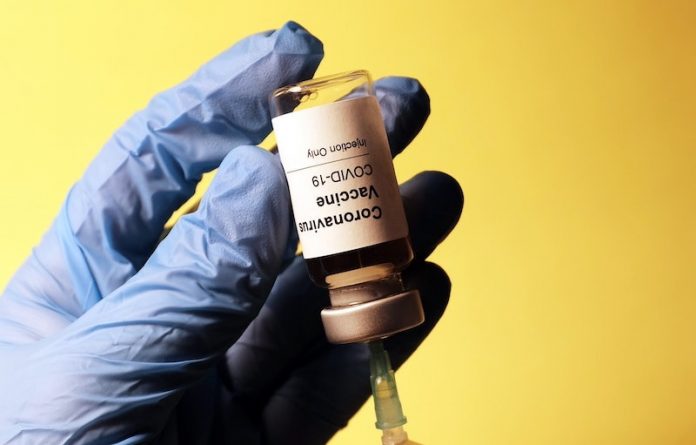
In a new study, researchers developed a COVID-19 vaccine that could provide protection against both existing and future strains of the COVID-19 virus, and other coronaviruses.
The vaccine was developed using an innovative approach that might one day open the door to a universal vaccine for coronaviruses, including coronaviruses that previously threatened pandemics or perhaps even coronaviruses that cause some cases of the common cold.
The new coronavirus vaccine offers several advantages that could overcome major obstacles to global vaccination efforts.
It would be easy to store and transport, even in remote areas of the world, and could be produced in mass quantities using existing vaccine-manufacturing factories.
The research was conducted by a team at Virginia Tech and elsewhere.
In the study, the team used a new platform they invented to rapidly develop new vaccines.
The new platform offers a new route to rapidly produce vaccines at very low cost that can be manufactured in existing facilities around the world, which should be particularly helpful for pandemic response.
The vaccine-production platform involves synthesizing DNA that directs the production of a piece of the virus that can instruct the immune system how to mount a protective immune response against the virus.
That DNA is inserted into another small circle of DNA called a plasmid that can reproduce within bacteria.
The plasmid is then introduced into bacteria, instructing the bacteria to place pieces of proteins on their surfaces. The technique uses the common bacteria E. coli.
The entire process, from identifying a potential vaccine target to producing the gene-deleted bacteria that have the vaccine antigens on their surfaces, can take place very quickly, in only two to three weeks, making the platform ideal for responding to a pandemic.
The team made two vaccines, one designed to protect against COVID-19, and another designed to protect against the porcine epidemic diarrhea virus.
Both are coronaviruses, but they are distant relatives. Porcine epidemic diarrhea virus and SARS-CoV-2, like all coronaviruses, share several of the amino acids that constitute the fusion peptide.
PEDV infects pigs, causing diarrhea, vomiting, and high fever, and has been a large burden on pig farmers around the world. When PEDV first appeared in pig herds in the U.S., it killed almost 10% of U.S. pigs—a pig pandemic.
The study is published in biorxiv. One author of the study is Dr. Steven L. Zeichner.
Copyright © 2021 Knowridge Science Report. All rights reserved.



